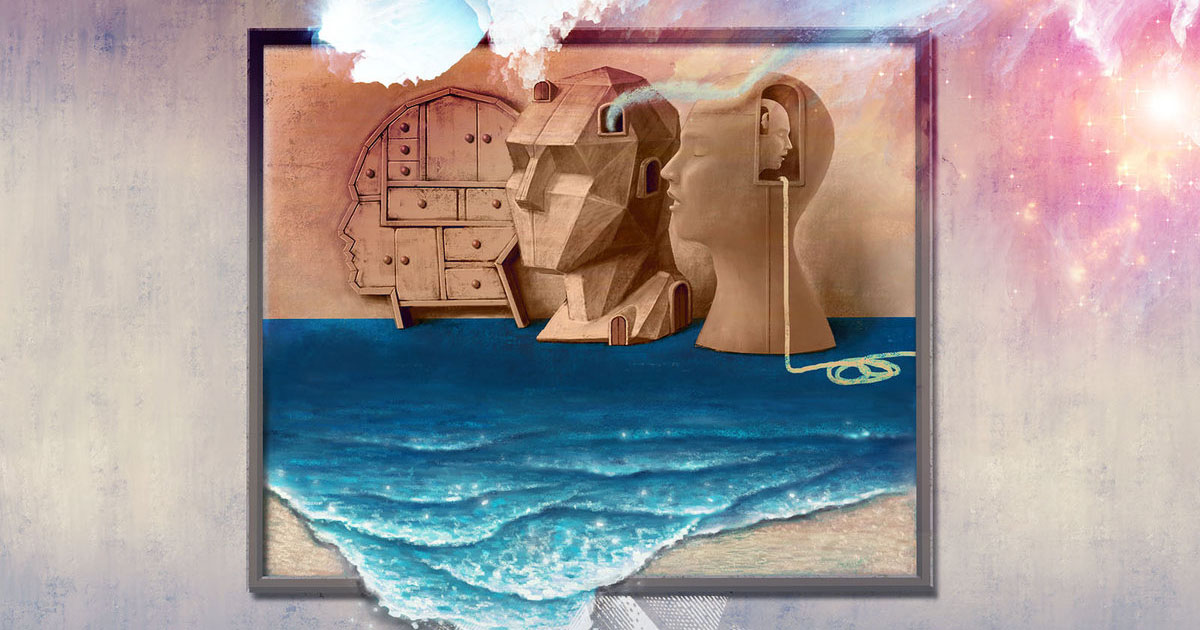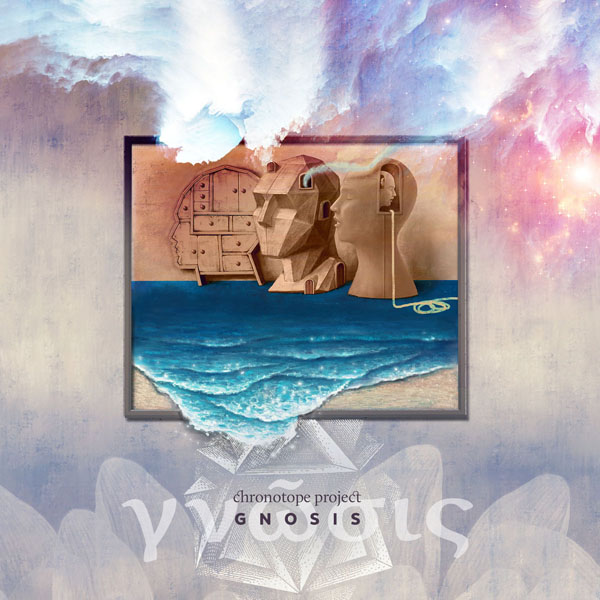Greek Philosophy in Ambient Electronics: Chronotope Project's "Gnosis", Echoes September CD of the Month.
by John Diliberto 8/28/2021 Some musicians are simply born outliers. The Harry Partch, John Cage and Moondogs of the mid-20th century, the Robert Rich, Stephan Micus and Steve Roaches of the modern world. These are artists who aren’t part of a trend, who don’t follow conventional paths and who take their influences to create something new. Jeffery Ericson Allen is one of those people. He’s been a classical cellist, a storyteller, a librarian, and a student of philosophy and mysticism. That all comes together in his guise as the electronic act, Chronotope Project. He’s recorded nine full albums, all using the imagery of mysticism, philosophy and science as imagistic underpinnings, and all fueled by electronic sounds with roots in European space music, new age and jazz.
Some musicians are simply born outliers. The Harry Partch, John Cage and Moondogs of the mid-20th century, the Robert Rich, Stephan Micus and Steve Roaches of the modern world. These are artists who aren’t part of a trend, who don’t follow conventional paths and who take their influences to create something new. Jeffery Ericson Allen is one of those people. He’s been a classical cellist, a storyteller, a librarian, and a student of philosophy and mysticism. That all comes together in his guise as the electronic act, Chronotope Project. He’s recorded nine full albums, all using the imagery of mysticism, philosophy and science as imagistic underpinnings, and all fueled by electronic sounds with roots in European space music, new age and jazz.
His latest album, Gnosis, emerges out of this matrix of influences. The cello is rarely heard in these electronic soundscapes. Instead the lead voice is usually the Haken Continuum, a ribbon controlled synthesizer that allows for pitch bends, seamless glissandos and many timbres. The concept of the album is based around the ancient Greek philosophers with a bit of science and mythology tossed in. Gnosis is Greek for knowledge and is usually applied to mystical insights. But you don’t need any of that awareness to become immersed in the sound world created by Chronotope Project.
The album opens like the birth of the universe. It’s called “Higgs Field, Cauldron of Being”, named after the Peter Higgs whose particle theories led to the Large Hadron Collider. “Higgs Field” builds out of a swirling, amorphous gas cloud. Out of the haze, a minimalist looping sequencer pattern courses through the bottom until drums, percussion, Tibetan horn-like synth sustains, and ethereal voices evolve into a dark crescendo. It’s a soundtrack for the Big Bang, spread out in slow motion.
 “Lethe, The River of Forgetfulness” draws from Plato and mythology for inspiration, and Miles Davis for its sound. It’s centered by an ostinato bass riff played on cello and moves into an electric piano improvisation that might have you recalling the Miles album, In A Silent Way. It’s joined by a Haken Continuum improvisation, with Allen favoring a sound that falls somewhere between a violin and an Armenian duduk, before slipping into a note-bending swirl of a Moog-like solo.
“Lethe, The River of Forgetfulness” draws from Plato and mythology for inspiration, and Miles Davis for its sound. It’s centered by an ostinato bass riff played on cello and moves into an electric piano improvisation that might have you recalling the Miles album, In A Silent Way. It’s joined by a Haken Continuum improvisation, with Allen favoring a sound that falls somewhere between a violin and an Armenian duduk, before slipping into a note-bending swirl of a Moog-like solo.
“Eidos, Realm of the Forms” follows suit with cyclical rhythms, including a zither strum and vague percussion, that evoke a gentle horse ride through a pastoral, magical landscape. Over it all, Allen drops a long, undulating solo, like an Indian alap, that part way through is joined by a squall of, again, Moog-like, note-bending timbres and squealing, octave sliding glissandos. Think about the end of Emerson, Lake and Palmer’s “Lucky Man.” Hand percussion loops fade in, building energy and tension until the piece reaches a low-key crescendo and fades off into the ether.
You can hear musical influences throughout Gnosis. “The Still Small Voice: The Muse Speaks” references Vangelis’s more romantic side in a slow largo of stacked cello strings and the mournful Haken Continuum. On “Entelechy, Emergent Order,” you can hear echoes of 70s German space music, especially Klaus Schulze. A gentle pulse, and Mellotron-like string pads and voices, head into ambient space, leaving you immersed and floating.
“Myth of the Cave”, draws from Plato again, and his mind game of imagining people who live in a cave and only see the shadows of objects and creatures, but not the things themselves. It’s an abyss of low, rumbling textures, bells and gongs pinging through the stereo spectrum, dislocated ghost piano riffs, and inside-the-piano strums.
Allen’s philosophical metaphors, imagery and titles aren’t after-the-event affectations like most instrumental music. He’s actually mapped-out these pieces to evoke a philosophical or theoretical construct. But you don’t need a PhD in philosophy to be transported away by his music, and maybe even obtain gnosis.
